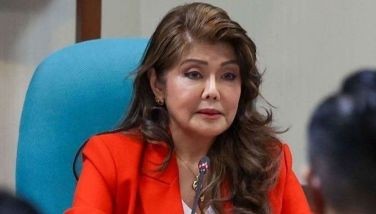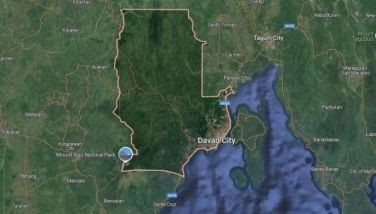Magnificent hour for sovereign Filipinos - FROM A DISTANCE By Carmen N. Pedrosa
January 20, 2001 | 12:00am
Once again, the Philippines has recaptured its image as a country worthy of emulation. I write as the world watches a uniquely Philippine-style revolution. Remember that EDSA 1 had earlier served as a model for peaceful people power revolutions in other parts of the world – Berlin, Tiananmen, among others. These days EDSA 2 is already being described as the model for a modern citizens’ uprising with all the paraphernalia of information technology – text messaging, e-mail, 24-hour cable news television.
As the generals led by General Angelo T. Reyes were each introduced to tumultuous cheering from crowds chanting "sundalo ng bayan, ngayon manindigan" and "Ang hatol ng bayan, guilty si Erap." But with victory we must keep our perspective. But there is a subtle and important difference between EDSA 1 and EDSA 2 that ought to be kept in mind. If Filipinos are in the streets in 2001, it is not in the traditional mold of uprisings that seeks primarily to overthrow a sitting government in order to install a new one. That was the case with Marcos. In 1986 people had massed in the streets after military rebels – led by then Gen. Fidel V. Ramos and Defense Secretary Juan Ponce Enrile – sought help from civilians. They hoped that crowds of civilians would protect them and other rebel soldiers holed up in Camp Aguinaldo from military assault. In other events, Marcos had challenged the widow of martyred hero, Corazon Aquino, as the new president. There had been an overriding sympathy for the widow of the slain martyr, Ninoy Aquino. She had earlier acquiesced to an election contest with the former dictator only to be cheated in the end. That is what brought citizens to the streets and why Marcos had to go.
In 2001, we do not have a sympathy figure like Mrs. Aquino. What we have is a collective citizenry awakening to its sovereignty, an impeached president and a constitutional successor. Filipinos are massing in the streets to test that role and whether they are capable of enforcing their will as provided for by the People Power Constitution of 1987. Had it been pursued to its conclusion, Erap’s impeachment trial at the Senate would have been the test of that capability. But that was stopped by the 11-10 vote Tuesday night. In a spectacular series of events Erap was impeached and ultimately ousted. The constitutional process itself up to the 23rd day was a showcase of how ordinary citizens came forward and fearlessly testified and shared documents to make the trial credible. Unfortunately, it was officialdom that failed them yet again with a majority of pro-Erap senators frustrating the opening of the second envelope containing evidence that was voluntarily submitted by Equitable-PCIB. There was no driving force to endorse any personality after an unfit president has been removed except what the Constitution ordains. For a long time there was uncertainty and a lack of unanimity about what or who should succeed an ousted leader but in the final hour of victory for Filipinos in the EDSA 2, there was no question that it would and should be Vice President Gloria Macapagal-Arroyo.
The significance of EDSA 2 is it demonstrated that the military can have a noble task other than taking over civilian government. The generals assert that the decision to give their unanimous support to the EDSA 2 people power was to ensure that the armed forces would not split. The generals did not allow themselves to compete for power. It was a relief that the military fulfilled their role as the Constitution said it. The Constitution is clear: Civilian authority is at all times supreme over the military. The Armed Forces of the Philippines is the protector of the people and the State. Its goal is to secure the sovereignty of the State and the integrity of the national territory.
From the start, how the military would play that role. We are reminded that in EDSA 1 it was about how civilians protected a group of military rebels holed up in Camp Aguinaldo while EDSA 2 is about a civilian uprising that received military support. And finally, we must say that we did not need any model to achieve what we did. In November 1999, I wrote the first columns on how the Ecuadorans ousted a president who failed to fulfill his mandate from the people. We did better than the Ecuadorans. Although we had an impeachment proceeding going, when we say that it would also fail us, Filipinos acted magnificently as sovereign citizens. EDSA 2 will be remembered as the event in which the citizens themselves proved their capacity for sovereignty.
My e-mail address: c.pedrosa@qinet.net
BrandSpace Articles
<
>
- Latest
- Trending
Trending
Latest
Trending
Latest
Recommended




























